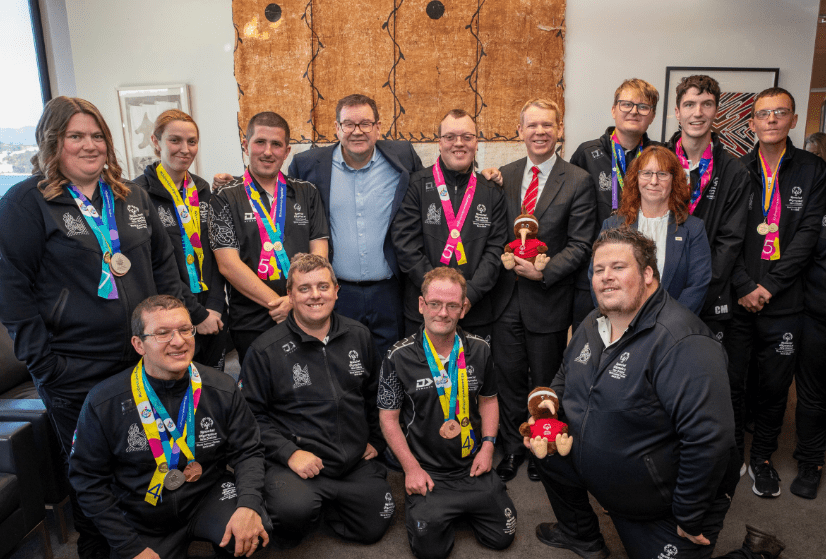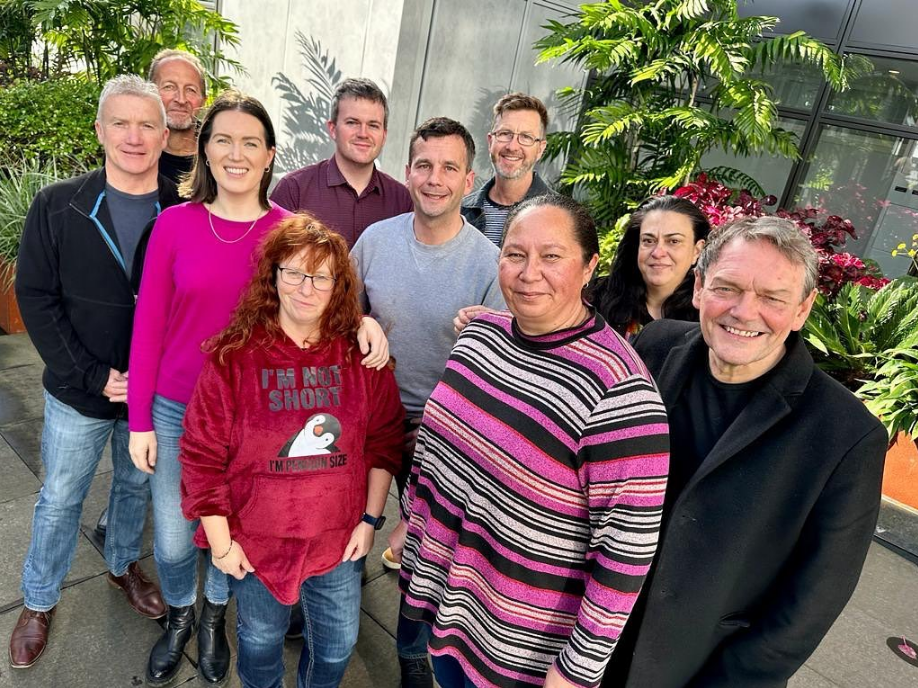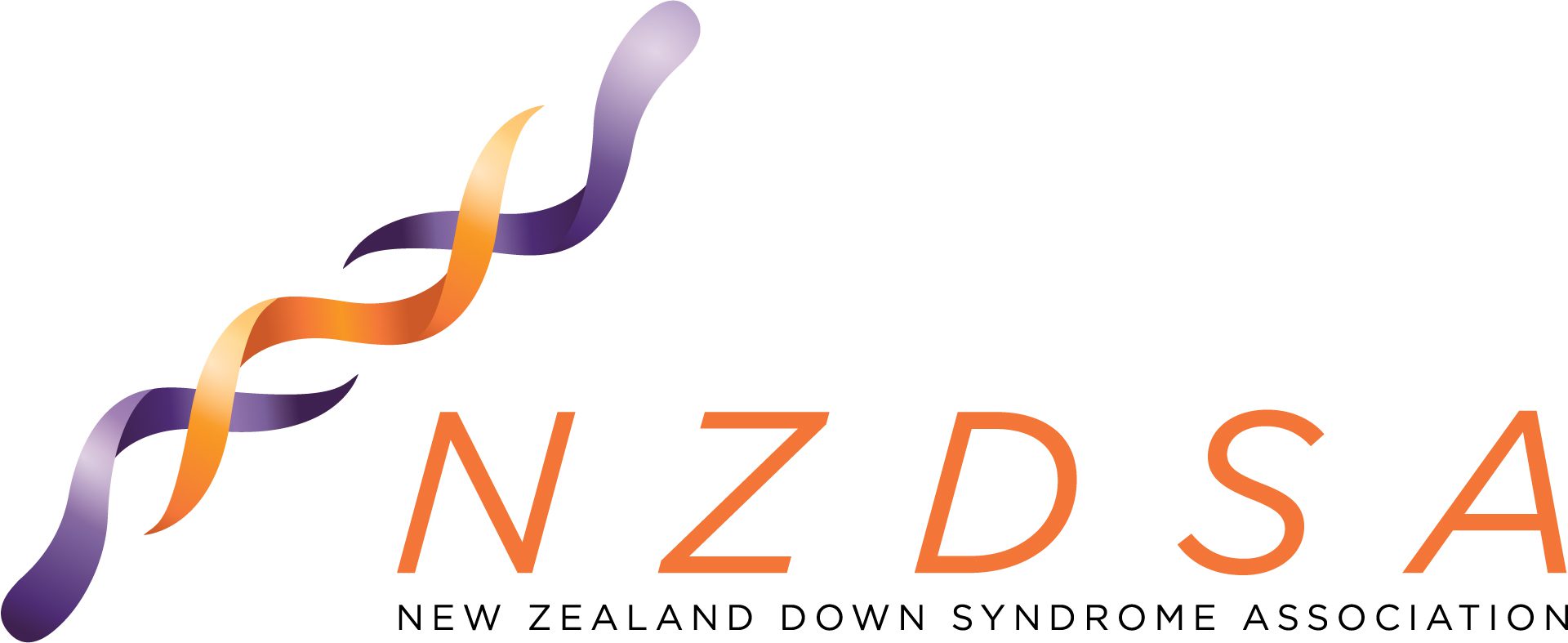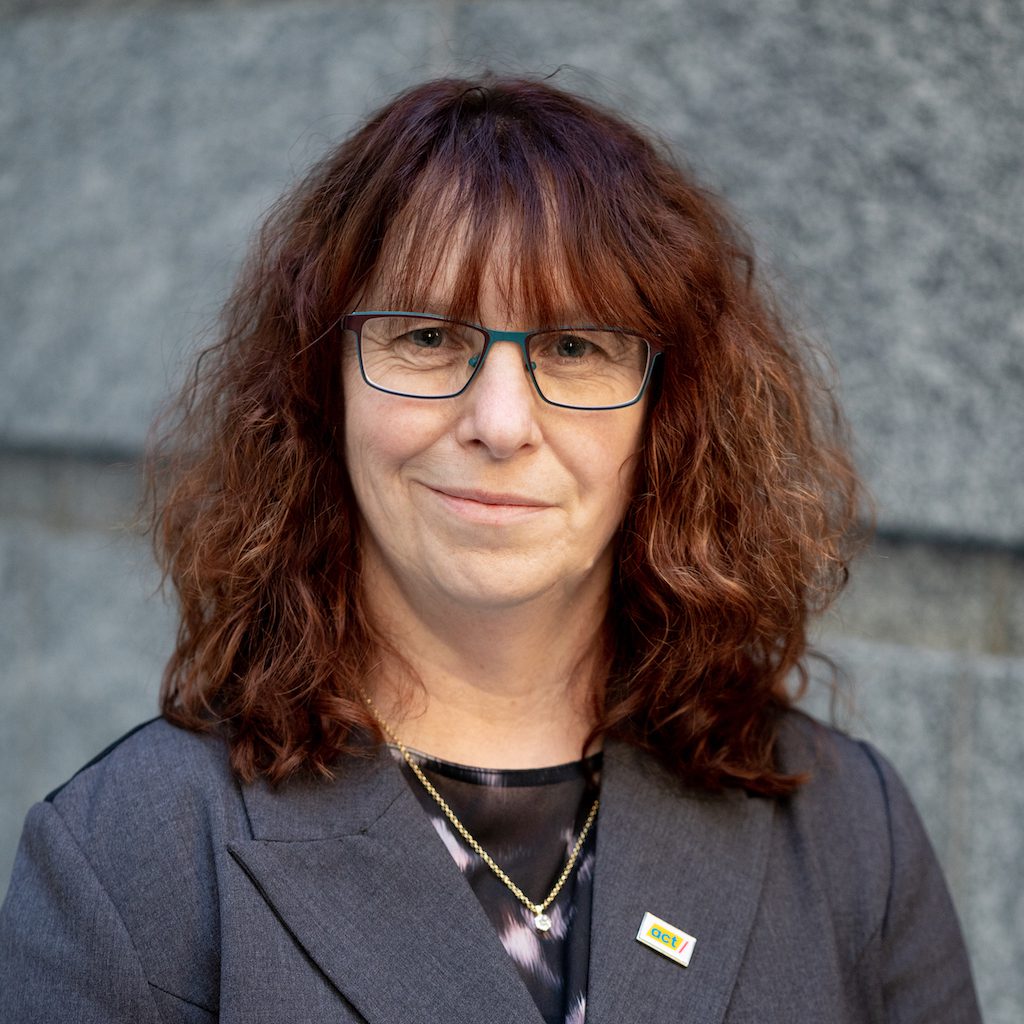
Severin, the Prime Minister, and Grant Robertson at an event to celebrate the Special Olympians
Toni Severin is a List MP for the ACT Party with the Disability Issues, Corrections, and ACC portfolios within her party. She is nearing the end of her first term in Parliament and lives in Christchurch East with her husband.
Severin describes that the day to day of this role involves shadowing the Government’s work as it relates to her portfolios, sitting in on select committees, answering questions from people who get in touch with her, and helping where she can.
“I also write what we call parliamentary written questions. So, if somebody [else in the ACT Party] sends me something, and I think, well, this is a little bit odd, I can see if there’s answers that we can get from the Minister for Disabilities.”
Although contact with NZDSA was new for her, Severin does have personal experience when it comes to the Down syndrome community.
“I do have a godson with Down syndrome. I haven’t seen him as much as I’d like to in the last three years, and it’s just amazing how quickly he has grown from a little boy to now a teenager. My husband had an aunt with Down syndrome. [ACT List MP] Simon Court, his youngest, Louis, has Down syndrome. So, our whole caucus is quite familiar with children and adults with Down syndrome.”
Severin also has lived experience of a learning disability, having been diagnosed with dyslexia at the age of 21. Identifying learning disabilities within the education system is one area where she sees the biggest need for change In Aotearoa.
“There are great teachers out there that identify [learning disabilities]. But also, with all the teachers that I have spoken to, or even the trainee teachers, a lot of them don’t get any training on it. I’m also a big mover to really look at how they’re teaching reading. And that’s what Speld and Mike Stiles is trying to push with a petition. This has been left too long, and we’re now reaping the consequences, because if you haven’t been picked up, if you’re now an adult, where are you? Are you gainfully employed or are you struggling or are you in prison?”
When asked about her opinion on the Government’s Budget that was released this winter, Severin’s main concern was how the new Ministry Whaikaha was spending.
“We would like to know what the Ministry Whaikaha are actually doing with the money and budget.”
To my mind, what Whaikaha should ideally be working out is what are the needs, because we know they are very vast. But we still need to know what is happening with all that money that has been given.”
One of ACT’s policies is disestablishing the Human Rights Commission. I asked Severin what this might mean for people with conditions such as Down syndrome, when the Commission works in areas such as accessible housing, employment rights for disabled people, and inclusive education.
“I’d hope that Whaikaha would be the one-stop-shop and take on that role. They should be the ones that should have a little bit more power around housing design, as well as employment, but also listen to all groups, because I know some groups have been shut out.”
The ACT Party is founded on principles of reducing the size and scope of Government, so would a Government with ACT as a coalition member consider disestablishing Ministry Whaikaha or reducing its scope?
“We would like to know what they’re doing, and what their basis is because at the moment, they’re a year old, and I know that they’re still establishing themselves. If anything, we just don’t want it to be a tokenism ministry, we want it to actually work for the disability communities, and listen to all because you know, [some groups have] bigger representation, have ‘the ear’ as I have understood, for many years.
“We need to be all inclusive, and some groups might not like each other. But we have to include everybody, because we need to hear everybody’s voice.”
Member Severin was cautiously positive on the principles of Enabling Good Lives that underpin the Ministry Whaikaha, stating that she sees “most of that as being pretty good.” However, she pointed out that it was still early days.
“We also know that one size does not fit all. So, we have to make sure that Enabling Good Lives is actually working for those different areas.”
The unemployment gap for people with a disability is a significant one, and it is even more serious for people with Down syndrome and similar conditions. ACT has a welfare policy to introduce Electronic Income Management. This is where people receiving a benefit have their spending controlled via the use of an electronic card. Their website states, “it is not the recipient’s money. It is taxpayer money and has always been given under a range of conditions such as seeking work.”
I asked Severin what this might mean for people who face serious barriers to employment, such as those with Down syndrome, and whether this would represent a restriction of freedoms and choices that Enabling Good Lives seeks to move away from.

Severin (front) at an ACT Party planning day
“It’s not so much for the disability community, it’s more for the more able-bodied people, especially around those that are not necessarily taking employment when they could, those that you know, are short money all the time, constantly going back to WINZ asking for top-ups because they can’t afford the power etc. because we know that the disability community’s needs are different, so it’s more around, you know, the unemployed, those on the child support benefits and all that sort of stuff.”
A few hours after our interview, Severin called me to let me know she’d taken the query back to her colleagues and confirmed that the policy was not aimed at disabled people.
We also discussed education, and ACT’s plan for a Teaching Excellence Award scheme. Given recent calls from teachers’ unions for funding for classroom support rather than their own pay necessarily, I asked if a Teacher Aide Excellence Award might also be on the cards. While it isn’t currently, Member Severin did write it down enthusiastically to take to her team.
As one of very few MPs with a known learning disability, Member Severin had these words of inspiration for Chat 21 readers.
“Well, one thing I’ve learned is that we’re all able, and we’ve all got abilities, and it’s just a matter of recognising our abilities, and being able to use them to our full potential. It’s identifying our superpowers and using them, and not to give up. I think you need to find what you love – the passion.”

